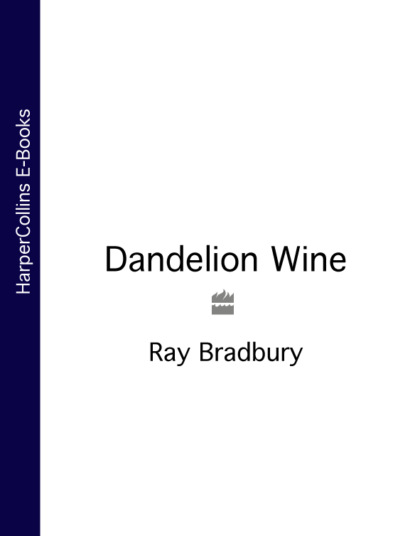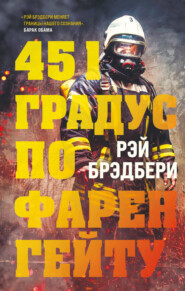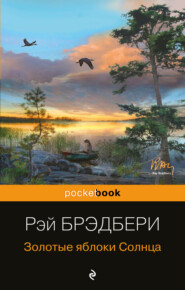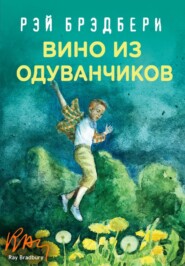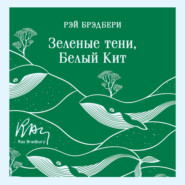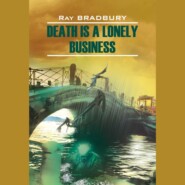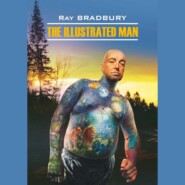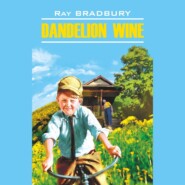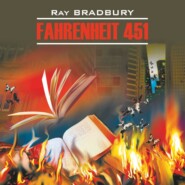По всем вопросам обращайтесь на: info@litportal.ru
(©) 2003-2025.
✖
Dandelion Wine
Автор
Год написания книги
2018
Настройки чтения
Размер шрифта
Высота строк
Поля
‘What?’
‘Bang! I deliver your packages, pick up packages, bring you coffee, burn your trash, run to the post office, telegraph office, library! You’ll see twelve of me in and out, in and out, every minute. Feel those shoes, Mr Sanderson, feel how fast they’d take me? All those springs inside? Feel all the running inside? Feel how they kind of grab hold and can’t let you alone and don’t like you just standing there? Feel how quick I’d be doing the things you’d rather not bother with? You stay in the nice cool store while I’m jumping all around town! But it’s not me really, it’s the shoes. They’re going like mad down alleys, cutting corners, and back! There they go!’
Mr Sanderson stood amazed with the rush of words. When the words got going the flow carried him; he began to sink deep in the shoes, to flex his toes, limber his arches, test his ankles. He rocked softly, secretly, back and forth in a small breeze from the open door. The tennis shoes silently hushed themselves deep in the carpet, sank as in a jungle grass, in loam and resilient clay. He gave one solemn bounce of his heels in the yeasty dough, in the yielding and welcoming earth. Emotions hurried over his face as if many colored lights had been switched on and off. His mouth hung slightly open. Slowly he gentled and rocked himself to a halt, and the boy’s voice faded and they stood there looking at each other in a tremendous and natural silence.
A few people drifted by on the sidewalk outside, in the hot sun.
Still the man and boy stood there, the boy glowing, the man with revelation in his face.
‘Boy,’ said the old man at last, ‘in five years, how would you like a job selling shoes in this emporium?’
‘Gosh, thanks, Mr Sanderson, but I don’t know what I’m going to be yet.’
‘Anything you want to be, son,’ said the old man, ‘you’ll be. No one will ever stop you.’
The old man walked lightly across the store to the wall of ten thousand boxes, came back with some shoes for the boy, and wrote up a list on some paper while the boy was lacing the shoes on his feet and then standing there, waiting.
The old man held out his list. ‘A dozen things you got to do for me this afternoon. Finish them, we’re even Stephen, and you’re fired.’
‘Thanks, Mr Sanderson!’ Douglas bounded away.
‘Stop!’ cried the old man.
Douglas pulled up and turned.
Mr Sanderson leaned forward. ‘How do they feel?’
The boy looked down at his feet deep in the rivers, in the fields of wheat, in the wind that already was rushing him out of the town. He looked up at the old man, his eyes burning, his mouth moving, but no sound came out.
‘Antelopes?’ said the old man, looking from the boy’s face to his shoes. ‘Gazelles?’
The boy thought about it, hesitated, and nodded a quick nod. Almost immediately he vanished. He just spun about with a whisper and went off. The door stood empty. The sound of the tennis shoes faded in the jungle heat.
Mr Sanderson stood in the sun-blazed door, listening. From a long time ago, when he dreamed as a boy, he remembered the sound. Beautiful creatures leaping under the sky, gone through brush, under trees, away, and only the soft echo of their running left behind.
‘Antelopes,’ said Mr Sanderson. ‘Gazelles.’
He bent to pick up the boy’s abandoned winter shoes, heavy with forgotten rains and long-melted snows. Moving out of the blazing sun, walking softly, lightly, slowly, he headed back toward civilization …
He brought out a yellow nickel tablet. He brought out a yellow Ticonderoga pencil. He opened the tablet. He licked the pencil.
‘Tom,’ he said, ‘you and your statistics gave me an idea. I’m going to do the same, keep track of things. For instance: you realize that every summer we do things over and over we did the whole darn summer before?’
‘Like what, Doug?’
‘Like making dandelion wine, like buying these new tennis shoes, like shooting off the first firecracker of the year, like making lemonade, like getting slivers in our feet, like picking wild fox grapes. Every year the same things, same way, no change, no difference. That’s one half of summer, Tom.’
‘What’s the other half?’
‘Things we do for the first time ever.’
‘Like eating olives?’
‘Bigger than that. Like finding out maybe that Grandpa or Dad don’t know everything in the world.’
‘They know every darn thing there is to know, and don’t you forget it!’
‘Tom, don’t argue, I already got it written down under Discoveries and Revelations. They don’t know everything. But it’s no crime. That I discovered, too.’
‘What other new crazy stuff you got in there?’
‘I’m alive.’
‘Heck, that’s old!’
‘Thinking about it, noticing it, is new. You do things and don’t watch. Then all of a sudden you look and see what you’re doing and it’s the first time, really. I’m going to divide the summer up in two parts. First part of this tablet is titled: RITES AND CEREMONIES. The first root beer pop of the year. The first time running barefoot in the grass of the year. First time almost drowning in the lake of the year. First water-melon. First mosquito. First harvest of dandelions. Those are the things we do over and over and over and never think. Now here in back, like I said, is DISCOVERIES AND REVELATIONS or maybe ILLUMINATIONS, that’s a swell word, or INTUITIONS, okay? In other words you do an old familiar thing, like bottling dandelion wine, and you put that under RITES AND CEREMONIES. And then you think about it, and what you think, crazy or not, you put under DISCOVERIES AND REVELATIONS. Here’s what I got on the wine: Every time you bottle it, you got a whole chunk of 1928 put away, safe. How you like that, Tom?’
‘I got lost a mile back somewhere.’
‘Let me show you another. Up front under CEREMONIES I got: First argument and licking of Summer 1928 by Dad, morning of June 24th. In back under REVELATIONS I got: The reason why grownups and kids fight is because they belong to separate races. Look at them, different from us. Look at us, different from them. Separate races, and ‘never the twain shall meet.’ Put that in your pipe and smoke it, Tom!’
‘Doug, you hit it, you hit it! That’s right! That’s exactly why we don’t get along with Mom or Dad. Trouble, trouble, from sunrise to supper! Boy, you’re a genius!’
‘Any time this next three months you see something done over and over, tell me. Think about it, and tell me that. Come Labor Day, we’ll add up the summer and see what we got!’
‘I got a statistic for you right now. Grab your pencil, Doug. There are five billion trees in the world. I looked it up. Under every tree is a shadow, right? So, then, what makes night? I’ll tell you: shadows crawling out from under five billion trees! Think of it! Shadows running around in the air, muddying the waters you might say. If only we could figure a way to keep those darn five billion shadows under those trees, we could stay up half the night, Doug, because there’d be no night! There you are; something old, something new.’
‘That’s old and new, all right.’ Douglas licked the yellow Ticonderoga pencil, whose name he dearly loved. ‘Say it again.’
‘Shadows are under five billion trees …’
Yes, summer was rituals, each with its natural time and place. The ritual of lemonade or ice-tea making, the ritual of wine, shoes, or no shoes, and at last, swiftly following the others, with quiet dignity, the ritual of the front-porch swing.
On the third day of summer in the late afternoon Grandfather reappeared from the front door to gaze serenely at the two empty eye rings in the ceiling of the porch. Moving to the geranium-pot-lined rail like Ahab surveying the mild mild day and mild-looking sky, he wet his finger to test the wind, and shucked his coat to see how shirt sleeves felt in the westering hours. He acknowledged the salutes of other captains on yet other flowered porches, out themselves to discern the gentle ground swell of weather, oblivious to their wives chirping or snapping like fuzzball hand dogs hidden behind black porch screens.
‘All right, Douglas, let’s set it up.’
In the garage they found, dusted, and carried forth the howdah, as it were, for the quiet summer-night festivals, the swing chair which Grandpa chained to the porch-ceiling eyelets.
Douglas, being lighter, was first to sit in the swing. Then, after a moment, Grandfather gingerly settled his pontifical weight beside the boy. Thus they sat, smiling at each other, nodding, as they swung silently back and forth, back and forth.
Ten minutes later Grandma appeared with water buckets and brooms to wash down and sweep off the porch. Other chairs, rockers and straight-backs, were summoned from the house.
‘Always like to start sitting early in the season,’ said Grandpa, ‘before the mosquitoes thicken.’
About seven o’clock you could hear the chairs scraping back from the tables, someone experimenting with a yellow-toothed piano, if you stood outside the dining-room window and listened. Matches being struck, the first dishes bubbling in the suds and tinkling on the wall racks, somewhere, faintly, a phonograph playing. And then as the evening changed the hour, at house after house on the twilight streets, under the immense oaks and elms, on shady porches, people would begin to appear, like those figures who tell good or bad weather in rain-or-shine clocks.
Uncle Bert, perhaps Grandfather, then Father, and some of the cousins; the men all coming out first into the syrupy evening, blowing smoke, leaving the women’s voices behind in the cooling-warm kitchen to set their universe aright. Then the first male voices under the porch brim, the feet up, the boys fringed on the worn steps or wooden rails where sometime during the evening something, a boy or a geranium pot, would fall off.





